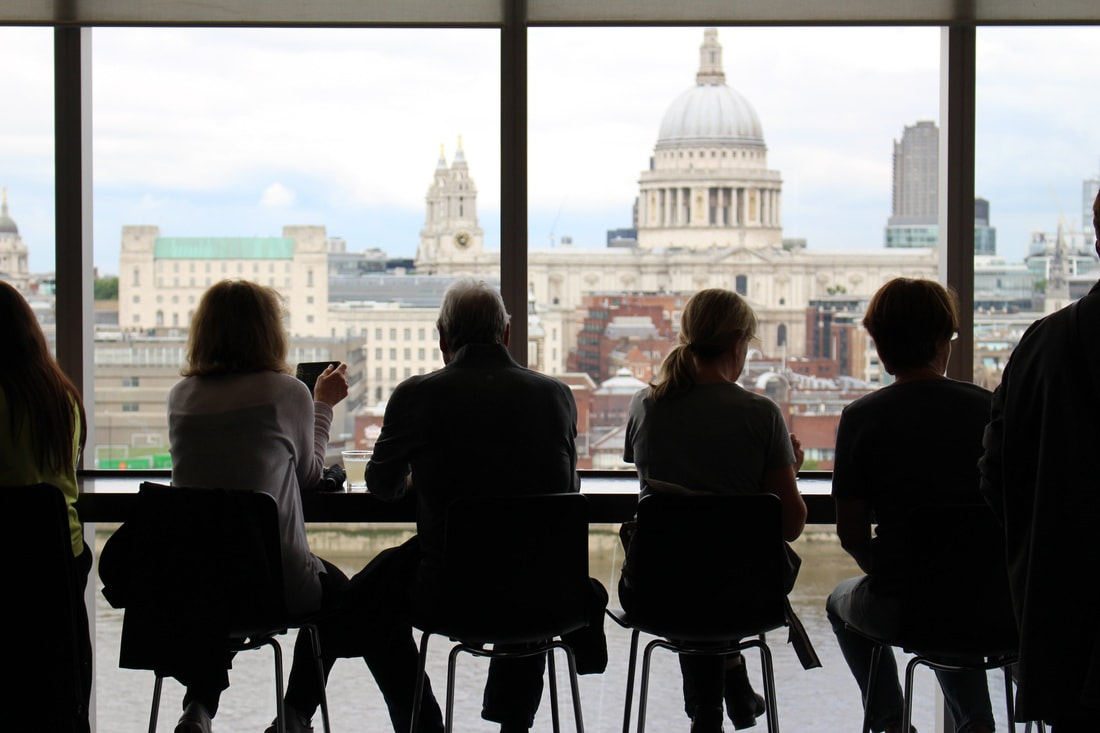|
(originally written 2015, but seems timely for the present)
Remembering Our Mission On the very first page of our United Methodist Book of Discipline, we are reminded of the mission of the United Methodist Church. Our stated mission is, To make disciples of Jesus Christ for the transformation of the world. That’s why we’re here. Our ultimate purpose is to glorify God and we do so by making disciples of his Son who will change the world with his Gospel. Once again, I love the way our Discipline puts it. It says, The local church provides the most significant arena through which disciple-making occurs. It is a community of true believers under the Lordship of Christ. It is the redemptive fellowship in which the Word of God is preached by persons divinely called and the sacraments are duly administered according to Christ’s own appointment. Under the discipline of the Holy Spirit, the church exists for the maintenance of worship, the edification of believers, and the redemption of the world. I love that mission and the language used to express it. The World’s Desperate Need Who could argue that our world is presently in serious need of redemption? In China, Iran, Iraq, Syria, and certainly in our country – just to name a few – we find overwhelming sin, devastation, unrest, brokenness, war, death, and more. The fallen, sinful, broken human condition is on display for all to see. If ever the world needed faithful disciples of Jesus Christ to bring redemption, it’s now. Yet it’s not just “over there,” is it? It’s here in our own backyard. The need is in our own lives, our families, our workplaces, and our local communities. Every sphere of our lives needs the transforming power of the Gospel of Jesus Christ. That’s why we’re called to make faithful disciples of Jesus Christ. Two Stories I want to briefly share two stories. The first is about an incredibly small and seemingly insignificant group of people who began turning the greatest empire in the world (at that time) upside down with nothing more than the Gospel. The second story takes place about 1,700 years later. It involves another small group of people who, armed only with that same Gospel, helped turn England upside down (or better, right-side up). Story #1 Our first story begins with the Apostle Paul and his companions, who had just come from Philippi. In fact, they had just been released from prison and had been escorted out of the city by the officials. Their next stop was going to be Thessalonica, which was about 100 miles away. On their way there, they passed through a couple of cities, Amphipolis and Apollonia, staying at each only one night before heading out the next morning. When they arrived in Thessalonica, Paul began his usual routine of going to the local synagogue of the city. Why did he go there first? Verses 2-3 tell us, As his custom was, Paul went into the synagogue, and on three Sabbath days he reasoned with them from the Scriptures, [3] explaining and proving that the Christ had to suffer and rise from the dead. “This Jesus I am proclaiming to you is the Christ,” he said. Paul was a Jew. His heart was for his fellow Jews. He loved them. Therefore, even though he was called to be the Apostle to the Gentiles, he just couldn’t help himself. He often went first to his own people. What did he say to them? He reasoned with them. He taught and preached from the Old Testament. He used it to explain and prove that Jesus was just who he said he was, the fulfillment of Old Testament prophecies. Furthermore, he showed them that Christ had to suffer and die on the Cross for the sins of the world – but that Christ also had to rise from the dead for our salvation. Paul proclaimed that Jesus of Nazareth was no less than the Christ – the Messiah of God. The Gospel of the Kingdom This is the Gospel of Jesus Christ, the Gospel of the Kingdom of God. The Gospel first calls us to turn away from our own sin – our fallen, broken, and selfish thinking, desires, words, actions, and attitudes. It also calls us to trust in Christ alone to forgive us, save us, heal us, mend us, lead us, and to make us holy. That’s the Gospel and that’s what Paul preached and taught in Thessalonica. And people responded. Take a look at verse 4, Some of the Jews were persuaded and joined Paul and Silas, as did a large number of God-fearing Greeks and not a few prominent women. People responded. Lives were changed. Supernaturally speaking, disciples of Jesus Christ had been born. But, as often is the case, some folk weren’t happy about this. In fact, where the Gospel is preached and where God is doing a great work of deliverance, there will often be opposition. We discover this as we read verse 5, But the Jews were jealous; so they rounded up some bad characters from the marketplace, formed a mob and started a riot in the city. They rushed to Jason’s house in search of Paul and Silas in order to bring them out to the crowd. You see, the Jews weren’t at all happy about this work of Paul and company, nor the message they proclaimed. So they got the meanest, toughest, nastiest people they could find to stir up trouble for Paul and Silas and their newest converts. Thessalonica was something of a harbor town. There were plenty of drifters in search of trouble, roaming around the marketplace. It wouldn’t have been a great effort to round up and “encourage” some of these folk to cause a little trouble for Paul and company. And that’s exactly what they did. But there was a problem. Paul and Silas evidently got word of this and were able to get away. And so the mob did the next best thing. They grabbed Jason and a few others. Jason was one of the converts who was hosting Paul and Silas. It seems that Jason and some of his new brothers in Christ were guilty by association. Don’t Despise the Day of Small Beginnings We’ve now arrived at a special part of this story. Verse 6 says, But when they did not find them, they dragged Jason and some other brothers before the city officials, shouting: “These men who have caused trouble all over the world have now come here, Read those words again: “These men who have caused trouble all over the world have now come here.” That translation from the NIV is my least favorite. Here are a few other translations of that verse that help to capture what was being said: These men who have upset the world have come here also; (NASB) These people are out to destroy the world, and now they’ve shown up on our doorstep, attacking everything we hold dear! (The Message) Here’s my favorite. These men who have turned the world upside down have come here also, (ESV and KJV) What were they referring to? How could this little insignificant group of people do anything to the mighty Roman Empire? They weren’t even armed. Or were they? They were indeed. They were armed with the Gospel of Jesus Christ, which Paul tells us, is the power of God for the salvation of Jews and Gentiles alike. And everywhere that disciples of Jesus Christ went throughout the Roman Empire, both Jews and Gentiles were being transformed into what was sometimes called, “a third race” of new creatures in Christ. Their lives were changing. Their values were becoming different. Their new beliefs were colliding with their old beliefs. The kingdom of this world was being turned upside down with the message and order of a new Kingdom. Another King Frustrated and still looking to stir up trouble, more accusations were issued. Verse 7 reveals a critical notion that even some in our own day still misunderstand. “They are all defying Caesar’s decrees, saying that there is another king, one called Jesus.” Do you see what their accusers were doing? The same charge that was brought against our Lord Jesus – namely treason against Caesar and the Empire – was now being leveled against Paul and his companions. They were accusing them of declaring that there was a new King, one called Jesus. They knew that was the way to get Rome’s attention. After the city officials decided there was no good reason to hold Jason and his companions, they made Jason promise that Paul wouldn’t preach anymore. Paul probably wasn’t happy about having to leave, but he seems to have honored Jason’s promise and left for a season. Happily for those in Thessalonica, this doesn’t appear to have been Paul’s only time there. Story #2 To begin our next story, we need to fast-forward about 1,700 years. John Wesley was born on June 17, 1703, in the small town of Epworth in northeastern England. Here are just a few descriptive phrases about this England into which John Wesley was born. England had just come out of a bloody civil war. Political tensions were high. There was extreme poverty. Regular employment was uncertain. Housing was often inadequate and unaffordable. Pure drinking water was scarce. Food was in short supply. Disease was rampant. Alcohol, violence, prostitution, and gambling were popular means to escape feelings of desperation and hopelessness. Children as young as four or five were employed as chimney sweeps or in mines and factories. Life was insecure. (Charles Yrigoyen, John Wesley: Holiness of Heart and Life) John Wesley’s Message That was the condition of England as John Wesley began his ministry. It has some pretty remarkable similarities to our own day, doesn’t it? There’s much to mention about John Wesley’s preaching, but here’s the central idea: He preached the whole Gospel for the whole person. He didn’t preach a truncated Gospel message that only promised heaven once you died. It included heaven, but it was more comprehensive than that. He preached a Gospel – the biblical Gospel – that changed lives in the here and now. As people were won for Christ, Wesley made sure they were discipled. That means he encouraged them to get involved in what we would call Bible studies, small groups, and accountability groups. It would be in those settings that they would worship God, study his Word, take communion, pray for each other, and hold each other accountable for growing in holiness. As the Apostle Peter would put it, he constantly encouraged them to grow in the grace and knowledge of the Lord Jesus Christ. Wesley gave these early Methodists “General Rules” that served to keep them moving in the right direction. These rules focused on our personal relationship and walk with Christ, both in its private and public manifestations, exercising mercy and compassion to the least among us and bearing witness to spiritually lost people. A Transformed World What might happen to a city where genuinely Spirit-empowered, Spirit-guided people were faithfully and regularly growing in these areas? Such transformation of these early Methodists helped turn England upside down, just as it began to do in Rome 1,700 years earlier. The Methodist movement, according to even secular historians, contributed greatly in moving England from the same sort of bloody revolution that took place in France. The Cost But there was a cost. There’s always a cost of discipleship, which is why Jesus calls us to count the cost before we commit our lives to him. These disciples of Jesus Christ, called Methodists, were insulted, slandered, and attacked in newspapers. And just like what happened in Thessalonica 1,700 years before, mobs even physically attacked them. They were beaten, their houses were burned down, and their property was stolen. Why? Because these Methodists were now serving another King. The Result What happened to these early Methodist Christians? Did they give up and return to their old ways of life? Far from it! Methodists grew in faith and numbers. The Gospel of the Kingdom of God was declared in more places with greater impact. Lives were changed. That little corner of the world called England was transformed in many ways that brought glory to God and blessed the lives of its people. What a powerful witness for Christ! Two Ideas Scripture says that the early disciples turned their world upside down with the message of the Gospel and that lives were changed by it. History shows us that John Wesley and the early Methodists turned their world upside down with the message of the Gospel and that lives were changed by it. Key Idea #1 The first key idea is this: The Gospel of the Kingdom doesn’t actually turn the world upside down. It turns it right-side up! The truth is, our fallen, sinful, broken world is already upside down. Its values, beliefs, attitudes, desires, actions –and all the rest – are contrary to those of God’s Kingdom. Jesus came to set things right – in every sphere of life. However, that far-reaching, socially impacting, worldwide transformation that Christ calls us to must first begin in the hearts of individuals. Each of us must become new creatures in Christ who will faithfully follow him as his disciples. Only then, as we take our new life – our new worldview, values, attitudes, desires, and actions – with us, wherever we go, can we move toward transforming the world for Christ. It starts with us as individuals. It moves to our families. It impacts our church, our workplaces, our friendships, our community, our city, our state, our country, and eventually our world. But we have to first start where we are. Key Idea #2 As followers of Jesus Christ, and spiritual descendants of the Apostle Paul and John Wesley, this is your spiritual legacy too. You see, their stories belong to you. In fact, this is your story. Your life continues the story begun by our Lord Jesus Christ. Will you join him and continue his story? Walking Points
0 Comments
Leave a Reply. |
Sermons & Etc.Categories
All
Archives
March 2024
|


 RSS Feed
RSS Feed

